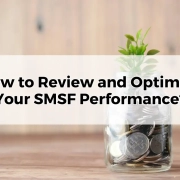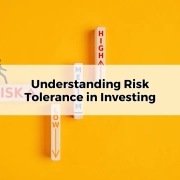When Should You Consider Adding Private Equity to your Portfolio?
Table of Contents
TogglePrivate equity is often associated with institutional investors and high-net-worth individuals, but it is increasingly accessible to sophisticated retail investors. This alternative asset class can provide unique opportunities for wealth creation, diversification, and long-term growth. However, it is not suitable for every investor, and its inclusion in a portfolio requires careful deliberation.
Understanding Private Equity
Private equity refers to investments made directly in private companies or buyouts of public companies that result in their delisting. Unlike publicly traded shares, private equity investments are illiquid, often requiring capital to be locked in for extended periods. This asset class typically involves venture capital, growth equity, and buyouts, each with its own risk-return profile.
The Role of Private Equity in a Diversified Portfolio
Diversification is a fundamental principle of sound financial planning. Private equity can serve as a counterbalance to publicly traded equities and bonds, offering uncorrelated returns and reducing overall portfolio volatility. By incorporating private equity, investors can gain exposure to industries and growth opportunities not typically available through public markets.
Liquidity Considerations: Are You Comfortable with Long-Term
Commitments?
Private equity investments often require a commitment of five to ten years, with limited opportunities for early exit. This lack of liquidity contrasts with publicly traded assets, where investors can buy and sell freely. Investors must assess their financial flexibility and ensure they do not need immediate access to the invested capital before allocating funds to private equity.
Risk vs Reward: Evaluating the Potential Gains
Private equity has historically delivered higher returns compared to traditional asset classes, but this comes with increased risk. Investors must be willing to accept the possibility of losses, as private companies are more susceptible to economic downturns and operational challenges. Thorough due diligence is essential to mitigate risks and maximise potential gains.
Assessing Your Investment Horizon and Financial Goals
Private equity aligns best with long-term investment strategies. Those nearing retirement or requiring liquidity in the short term may not be well-suited for private equity investments. Conversely, younger investors or those with a high net worth and a long-term vision may find private equity an attractive option for wealth accumulation.
Accessing Private Equity: How Can You Invest?
There are several ways to access private equity, including direct investments, private equity funds, and listed private equity companies. Each avenue comes with its own level of risk, fees, and potential returns. Engaging with a professional financial adviser can help investors navigate
these options and identify the best approach for their circumstances.
The Impact of Private Equity on Retirement Planning
For those focused on retirement financial advice, private equity can play a role in enhancing long-term returns. However, it should not form the core of a retirement portfolio due to its illiquid nature. Strategic allocation in conjunction with traditional asset classes can provide a balanced approach to wealth preservation and growth.
The Importance of Due Diligence and Professional Guidance
Investing in private equity requires extensive research and professional due diligence. Unlike public equities, where financial statements and market trends are readily available, private equity investments demand deeper analysis of management teams, business models, and industry trends. Working with a qualified financial adviser ensures investors make informed
decisions and avoid unnecessary risks.
Tax Implications of Private Equity Investments
Private equity investments come with complex tax considerations, including capital gains tax, carried interest, and potential tax deferrals. Understanding the tax implications and structuring investments accordingly can optimise after-tax returns. Consulting a financial adviser can help investors navigate the nuances of taxation and compliance.
Is Private Equity Suitable for SMSF Investors?
Self-managed super funds (SMSFs) can access private equity, but trustees must carefully assess the suitability of such investments within their fund’s strategy. Compliance with regulatory requirements and maintaining appropriate liquidity levels are crucial. SMSF investors should seek expert advice before committing to private equity.
Conclusion
Private equity offers substantial opportunities for wealth creation, but it is not a one-size-fits-all investment. Investors must consider factors such as liquidity, risk tolerance, investment horizon, and financial objectives before adding private equity to their portfolio. Seeking guidance from a Toowoomba financial adviser can ensure that private equity aligns with an investor’s broader financial planning strategy.
For those seeking expert advice on integrating private equity into their portfolio, Wealth Factory offers tailored financial planning Toowoomba solutions. Contact us today to explore your investment options with an experienced online financial adviser.









